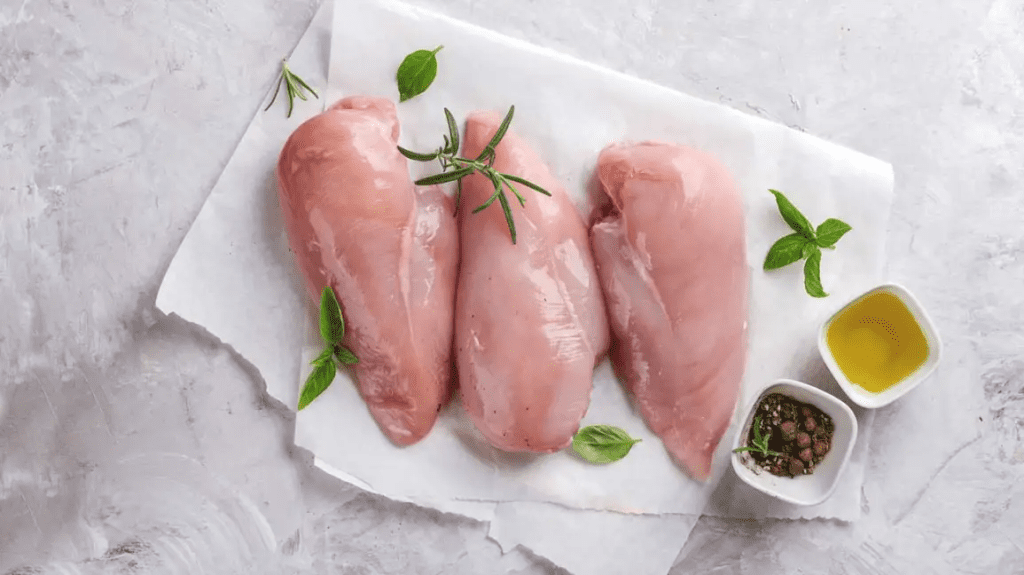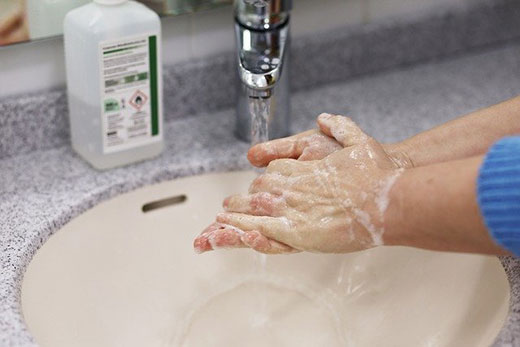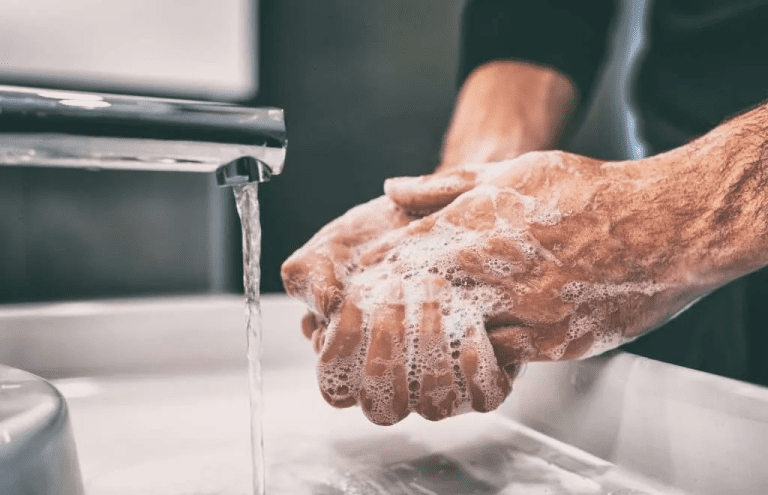When it comes to food safety, there’s one simple rule that can’t be ignored: wash your hands with soap after handling raw chicken. Yet, some people claim soap isn’t necessary or that a quick rinse with water will do the trick. Sound familiar? While it might seem harmless, neglecting this crucial step could lead to serious health risks. Let’s dive into the science behind hand hygiene, the risks of skipping it, and the expert recommendations that keep you and your loved ones safe.
Why Is Raw Chicken a Health Hazard?

Raw chicken is notorious for harboring harmful bacteria like Salmonella and Campylobacter. These pathogens are invisible but powerful, capable of causing foodborne illnesses with symptoms such as nausea, diarrhea, vomiting, and even hospitalization in severe cases.
The danger doesn’t stop at the chicken itself. These bacteria can quickly spread to your hands, cutting boards, utensils, and countertops. Imagine touching raw chicken, then grabbing a spice jar or opening the fridge. Without proper handwashing, bacteria can contaminate everything you touch, creating a chain reaction of risk throughout your kitchen.
Does Soap Really Make a Difference?
Absolutely. Soap isn’t just about making your hands smell nice—it’s a powerful tool in removing bacteria and breaking the cycle of contamination. Here’s why:
- How Soap Works: Soap molecules have a unique structure that allows them to latch onto dirt, oils, and bacteria, breaking them down so they can be rinsed away. This process eliminates germs that water alone can’t remove.
- Water Alone Isn’t Enough: Rinsing your hands with water might wash away visible grime, but it won’t remove harmful pathogens clinging to your skin. Soap ensures bacteria like Salmonella are completely eliminated.
Without soap, you’re essentially leaving harmful germs on your hands, waiting for their next chance to spread.
The Myths About Handwashing
Let’s tackle some common misconceptions about hand hygiene:
- “Water Alone Works Fine”: False. Water without soap only removes visible dirt but leaves behind bacteria and viruses.
- “Hand Sanitizers Are Just as Good”: While hand sanitizers are great in a pinch, they don’t remove grease or grime and are less effective against bacteria like those found in raw chicken.
- “Cooking Kills All Bacteria”: Cooking chicken thoroughly does kill bacteria on the meat, but it doesn’t address the bacteria left on your hands, utensils, or kitchen surfaces.
Believing these myths could lead to unsafe practices and put your health at risk.
The Risks of Skipping Soap
What happens if you handle raw chicken and don’t wash your hands with soap? The consequences can range from mild discomfort to severe illness.
- Cross-Contamination
Bacteria on your hands can transfer to other foods, utensils, and surfaces, creating a breeding ground for illness. - Foodborne Illnesses
Ingesting bacteria like Salmonella or Campylobacter can cause gastrointestinal distress, dehydration, and other complications. Vulnerable groups, such as children, the elderly, and those with weakened immune systems, face an even higher risk. - Community Health Risks
Improper hand hygiene doesn’t just affect you—it can lead to outbreaks of foodborne illnesses that impact everyone who comes into contact with contaminated food.
Skipping soap after handling raw chicken isn’t just a personal risk—it’s a public health hazard.
What Do Food Safety Experts Recommend?

Organizations like the Centers for Disease Control and Prevention (CDC) and the World Health Organization (WHO) agree: washing your hands with soap and water is essential after handling raw poultry. Here’s the proper technique:
- Wet your hands with clean, running water (warm or cold).
- Apply soap and lather thoroughly.
- Scrub your hands for at least 20 seconds, including between your fingers and under your nails.
- Rinse well under running water.
- Dry your hands with a clean towel or air dry them.
This simple process can drastically reduce the risk of spreading harmful bacteria.
Handwashing vs. Hand Sanitizers: What Works Best?
While hand sanitizers are a convenient option, they’re not a substitute for soap and water. Here’s how they compare:
- Hand Sanitizers: Effective at killing some germs but less reliable on greasy or visibly dirty hands. They don’t remove physical contaminants like chicken juices.
- Soap and Water: The gold standard. It physically removes dirt, grease, and bacteria while washing away germs completely.
For proper hygiene after handling raw chicken, always prioritize soap and water.
How to Prevent Cross-Contamination in Your Kitchen
Handwashing is just one piece of the puzzle. To create a safe cooking environment, follow these additional tips:
- Separate Cutting Boards
Use one cutting board for raw meat and another for vegetables or ready-to-eat foods to prevent cross-contamination. - Disinfect Surfaces
Clean countertops, utensils, and any surfaces that come into contact with raw chicken. Use hot, soapy water or a food-safe disinfectant. - Store Chicken Safely
Keep raw chicken in a sealed container or bag to prevent juices from leaking onto other foods in the fridge.
These practices, combined with proper hand hygiene, significantly reduce the risk of spreading harmful bacteria.
Addressing Concerns About Soap
Some people avoid using soap due to skin sensitivity or environmental concerns. Here’s how to address these issues:
- Choose Gentle Soaps
Opt for mild, fragrance-free soaps designed for sensitive skin. - Go Eco-Friendly
Many brands now offer biodegradable soaps and eco-friendly packaging, reducing environmental impact without compromising hygiene.
There’s no need to compromise on safety—gentle and sustainable options make soap accessible for everyone.
Best Practices for Handwashing

Want to ensure your handwashing routine is effective? Follow these steps every time:
- Wet Your Hands: Use clean, running water to start.
- Apply Soap: A small amount is all you need to create a lather.
- Scrub Thoroughly: Focus on all parts of your hands, including the back, between your fingers, and under your nails.
- Rinse Well: Make sure no soap residue or contaminants remain.
- Dry Properly: Use a clean towel or air dry your hands to prevent recontamination.
By making this routine a habit, you’ll protect yourself and others from potential risks.
Why Washing Your Hands Matters
Neglecting to wash your hands after handling raw chicken might seem harmless, but the risks tell a different story. From cross-contamination to serious foodborne illnesses, the potential consequences are far too great to ignore.
Soap is your best defense. It doesn’t just clean—it eliminates bacteria and prevents the spread of harmful germs. By taking a few extra seconds to wash your hands thoroughly, you can protect not only your health but also the well-being of everyone you cook for.
Conclusion
Washing your hands with soap and water after handling raw chicken isn’t just a good idea—it’s essential. The risks of skipping this step, from cross-contamination to foodborne illness, are too significant to overlook. Soap plays a vital role in breaking down bacteria and ensuring your hands are truly clean.
So next time you’re in the kitchen, make handwashing a priority. A little soap and water can go a long way in keeping your meals safe and your loved ones healthy. Don’t take shortcuts when it comes to hygiene—your health is worth it.


